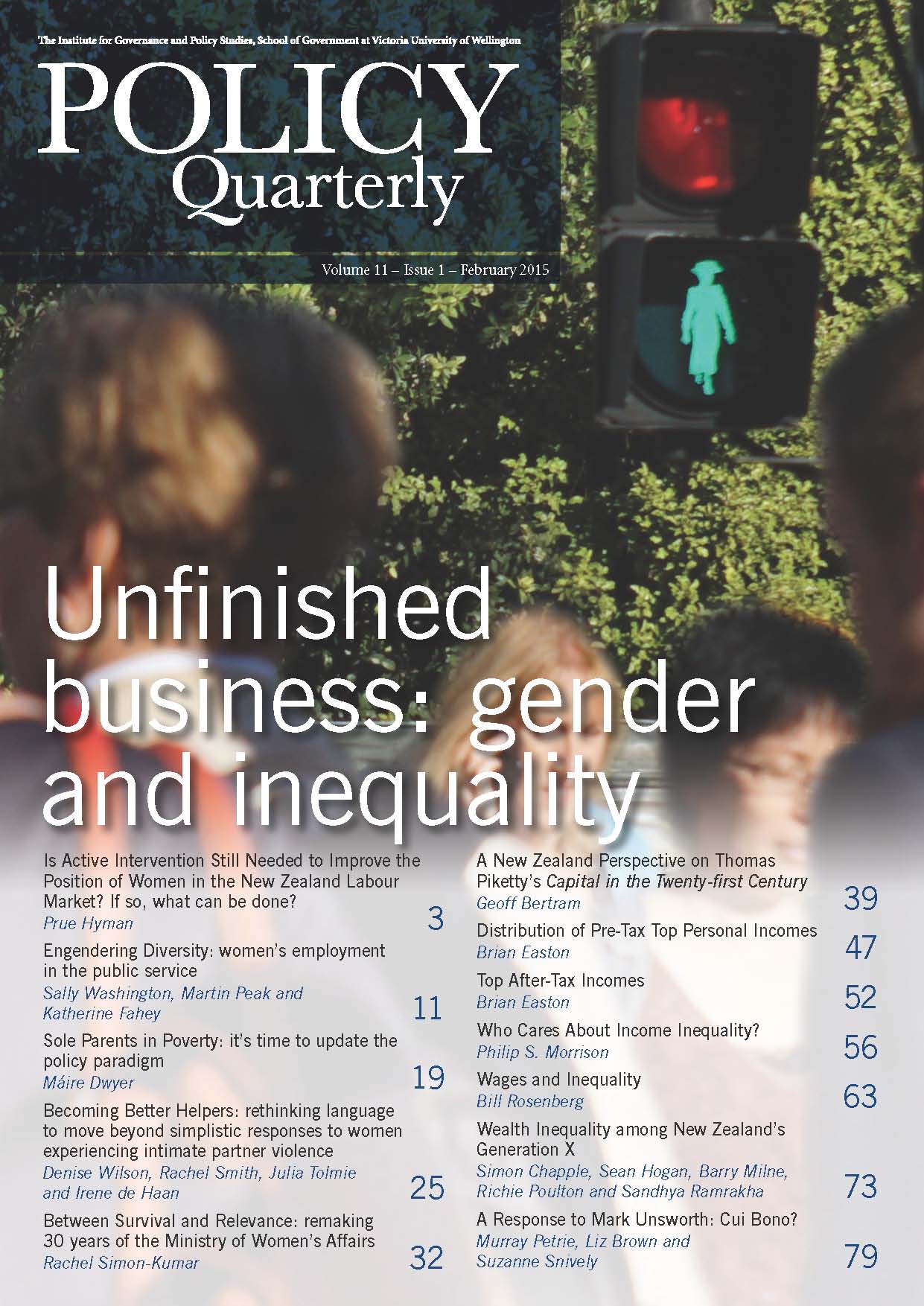Wages and inequality
DOI:
https://doi.org/10.26686/pq.v11i1.4521Keywords:
investment income, social welfare benefits, market incomes, Working for Families, inequality of disposable incomes, New Zealand’s Household Economic Survey (HES), OECD median, Wages and productivityAbstract
Wages and salaries are a vital part of the picture of income inequality in New Zealand because so many people depend on them as their principal or only source of income, although it is important to remember that the greatest extremes of inequality most frequently come from investment income (for very high incomes) and from social welfare benefits (for poverty). Wages and salaries are market incomes – that is, before taxes, tax credits like Working for Families, and other government assistance. ‘Market’ incomes include income from capital (real estate, investments, financial assets and other unearned income) as well as wages, but here we are looking only at wages and salaries (henceforth ‘wages’).
Downloads
Downloads
Published
Issue
Section
License
Permission: In the interest of promoting debate and wider dissemination, the IGPS encourages use of all or part of the articles appearing in PQ, where there is no element of commercial gain. Appropriate acknowledgement of both author and source should be made in all cases. Please direct requests for permission to reprint articles from this publication to Policy-Quarterly@vuw.ac.nz.



